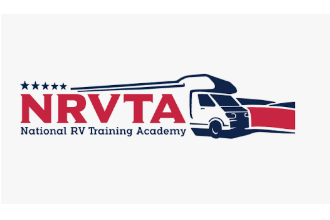NRVTA Begins Training Solar Installers and Technicians

The National RV Training Academy (NRVTA) announced it has doubled the number of courses to train people to install and maintain solar systems on RVs.
“This program is really beginning to pick up lots of steam,” said Todd Henson, NRVTA lead instructor, who is personally teaching the solar classes. “Without units being plugged into a power source, RVers are rather limited to what they can do and where they can stay. That’s why there is such a big push to adopt alternative power sources.”
NRVTA’s solar course teaches people how lithium batteries work to store and deliver energy through an inverter, how to set up solar panels and, more importantly, how to match an RVer’s needs to the right solar system. Technicians learn to conduct an energy audit to determine exactly how much power the RV requires during the day versus at night, and then select the correct equipment to deliver that power.
For example, some RVers require power to operate CPAP machines at night or to simply charge electronics, while others need to operate two or three air conditioners off battery power, said Henson.
“Many people are under the impression that solar systems are too expensive to install on RVs. It’s a myth,” he added. “Depending upon their specific needs, an RV solar system can be installed for less than $10,000. That’s a great price for the flexibility solar power offers RVers.”
While some people taking NRVTA’s solar class do so to save money by installing systems on their own rigs, most students see tremendous opportunity to make a living by completing solar installs for customers, said Henson. That’s why NRVTA is offering technicians the ability to become installers qualified to set up and maintain panels, inverters and batteries.
Each student participates in two hands-on solar installs during the one-week class. In fact, the course offers 11 hours of teacher-led lectures to discuss procedures and theory of generating solar power plus 24 hours of hands-on labs to sharpen their skills, said Henson.
Students completing the class must pass a test that evaluates book knowledge, as well as hands-on skills to attain a certificate of completion. Two classes are scheduled every seven weeks.
Students are not required to take any prerequisite classes; however, Henson strongly encourages students to take NRVTA’s RV Fundamentals class because of its heavy emphasis on RV electrical systems.



